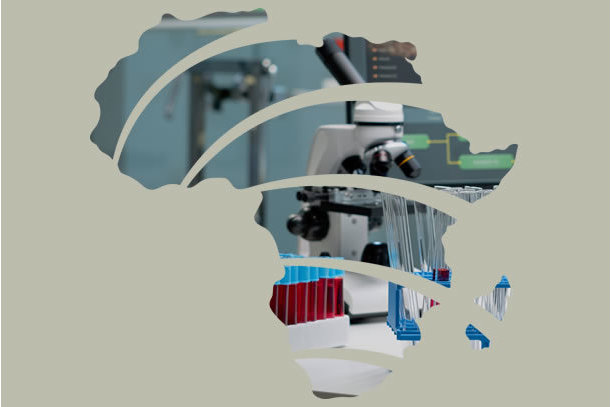Calling all innovators: Africa’s electricity market is ripe for market-creation

Feature Highlight
Innovators looking for an opportunity to create a profitable and impactful innovation should turn to Africa’s electricity market.
In 2022, there are still 600 million people who lack access to electricity in Africa.
Africa has the lowest levels of per capita use of modern energy, and despite the region being home to 60% of the best solar resources globally, there’s only 1% of installed solar photovoltaic (PV) capacity due to lack of sufficient investments being directed towards these resources.
This lack of access was compounded by the crisis of 2020, when COVID-19 triggered the largest fall in global energy investment in history, causing loss of economic opportunity, loss of jobs, and loss of energy supply. In 2021, stimulus spending meant to spur investment in energy projects was still falling short of what was needed to ensure a sustainable recovery from the crisis. In short, the global pandemic only caused Africa to fall further behind.
A silver lining
But despite these recent setbacks, the good news is that within Africa’s mass nonconsumption of electricity lies immense opportunity.
Falling costs in renewable energy is bringing it within Africa’s reach; yet minimizing the number of people lacking access to electricity, and modernizing and promoting sustainable clean energy across Africa, will still require radical innovation improvement. One key strategy to spur this improvement is through market-creating innovations (MCIs), which transform complicated and expensive products into products that are simple and affordable, making them accessible to a whole new segment of people for whom there was always underlying demand, but no adequate solution on the market.
In other words, if innovators create markets that serve nonconsumers of electricity, they’ll also, in effect, generate transformative developmental impact.
Specifically, Africa’s electricity market also affects the continent’s health, education, economy, and even food security. For example, facilitating and expanding access to electricity in healthcare centres benefits patient treatment. Powering up schools and households doubles up study hours and expands education methods, thereby improving academic performance. Deploying electricity across markets also improves business operating hours, increasing micro, small, and medium enterprises’ income. Finally, having the option of cold storage reduces food waste.
Africa’s MCI history can act as a guide for its electricity market
Fortunately, Africa is no stranger to success found within market creation.
Innovators looking for guidance can find it in Mo Ibrahim’s 1998 creation of Celtel. The wireless telecommunications company started in some of the poorest countries in the world – Malawi, Zambia, Sierra Leone, and Congo – where, as of the late 1990s, fewer than 5% of people had access to mobile phones. By making inexpensive mobile phones and telecommunications accessible, Ibrahim successfully targeted nonconsumption, and created a $3.4 billion company in a mere 7 years. Thanks to the access and infrastructure that resulted from Celtel’s MCI, today, the telecommunications industry in Africa is worth more than $55 billion and employs tens of thousands of people.
Celtel isn’t Africa’s only market-creation success story. In 1988, Tolaram Industries, maker of Indomie Instant Noodles, targeted nonconsumption in Nigeria’s food industry. To be successful in the food industry (i.e., create a noodle market where none had ever existed), Tolaram had to also be part of the energy, transportation, and education sectors. Tolaram provided their own power, built their own transportation networks, and invested millions in training their staff. The payoff to building this system was the market-creating innovation of an entire industry and tens of thousands of jobs across multiple sectors.
Following in these innovator’s footsteps, innovators looking for an opportunity to create a profitable and impactful innovation should turn to Africa’s electricity market.
Already, there’s a great advantage for innovators looking toward this market and, specifically, innovators looking towards clean, renewable energy. Most African countries don’t have a fossil fuel infrastructure as extensive as Europe’s or North America’s, so they’re in a better position to develop an economy centred on renewable energy. Achieving that economy will require MCIs that put in place structures and institutions to strengthen supply chains, shore up the skills base, and allow greater local value creation to benefit the local population.
Now is the time for innovators to target Africa’s nonconsumption of electricity and drive forward the continent’s socio-economic development.
Sandy Sanchez is a Research Associate, Global Prosperity, Clayton Christensen Institute.
Other Features
-
Analysing the Lagos State Electricity Law
The Lagos State Electricity Law introduces some changes that differ from the extant federal legislation that ...
-
-
The outlook of Islamic finance in 2025
Islamic finance market expected to reach $5 trillion in 2025 – Muhammad Zubair, CEO of AlHuda CIBE.
-
5 elections to watch in 2025
Not as many people will get the chance to vote in 2025 compared with the previous year.
-
Market and export potentials of kaolin in Nigeria
In the pharmaceutical industry, Kaolin serves as an excipient, binder, and coating agent for tablets, underscoring ...
-
The Movers and Shakers of Nigeria 2024
This year, 48% of the profiles are “Movers.” This means there are people who have continued to lift the ...
-
Top 5 best apps to sell Bitcoin in Nigeria
You can send Bitcoin directly to anyone, anywhere in the world, just like sending an email.
-
Is a market-creating innovation an empowering innovation?
What Christensen described as an empowering innovation almost 12 years ago is what we call a market-creating ...
-
Most Popular News
- Artificial intelligence can help to reduce youth unemployment in Africa – ...
- FG plans to capitalise Bank of Agriculture
- NCC approves 50 percent increase in mobile telecom tariffs
- Finnovex North Africa to address how to navigate the future of finance
- Spiro partners Davido to drive electronic mobility across Africa
- Global economic recovery is losing steam, new ILO report says















